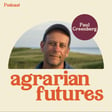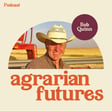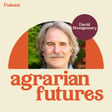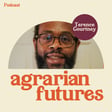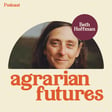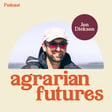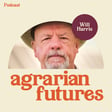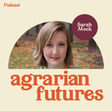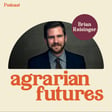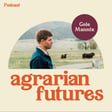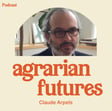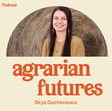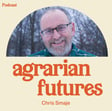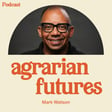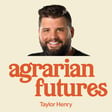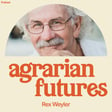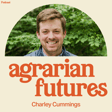
Regenerating Rural Economies with Jenni Harris of White Oak Pastures
For those who have followed regenerative agriculture anytime over the last three decades, this week’s guest needs no introduction. Jenni Harris is the Director of Marketing at White Oak Pastures, a six-generation farm in Bluffton, Georgia that transitioned from conventional to regenerative agriculture in 1995 (long before it was cool) and have laid the path for scores of farms to follow suit.
They have even gone so far as to found the Center for Agricultural Resilience, which educates, empowers and equips individuals & organizations on the benefits of resilient agriculture.
It’s a remarkable story and one - as Jenni explains - that other agrarian locales around the country can emulate, while accounting for the unique factors that make up each local environment.
In this episode, we cover:
- How Jenni’s search for community led her back to Bluffton and her family farm
- The history of Bluffton, and the work they’ve done to restore and revitalize the town
- The origin story of White Oak Pastures and how her dad, Will, saw the need to transition to regenerative practices that improved animal welfare, restored local ecosystems, and created a new stream of income for the farm
- The difficult financial realities of farming today, and how they’re working to make White Oak Pastures financially sustainable into the future.
- The threat to US regenerative farmers posed by “greenwashing” multinational corporations and lax policies for labeling imported foods
- What they’re doing to support more US farmers in transitioning to regenerative practices that are tailored to specific localities.
- What’s at stake for the world if we don’t transform our food system
- And much more...
Learn more about White Oak Pastures here.
Follow them on Twitter and Instagram.
More about Jenni:
Jenni Harris, Will's middle daughter, is a member of the fifth generation of the Harris family to tend cattle at White Oak Pastures. After living on the farm her entire life, Jenni went to Valdosta State University and earned a degree in Business Marketing, graduating in 2009. She remained intimately involved in the family business throughout her studies.
After graduating, Jenni set out to learn the industry. She moved to Atlanta where she interned at Buckhead Beef, a SYSCO company. She put in time in every department, from shipping and receiving to the cut shop, and was later hired to work as a sales associate.
In June of 2010, Jenni returned home to Early County to work for White Oak Pastures full time. As the Director of Marketing, Jenni spends her time focusing on the balance of ecommerce growth and wholesale relationships. Jenni is the proud mother of Jack and Lottie Harris and wife of Director of Specialty Products, Amber Harris.
Agrarian Futures is produced by Alexandre Miller, who also wrote our theme song.
